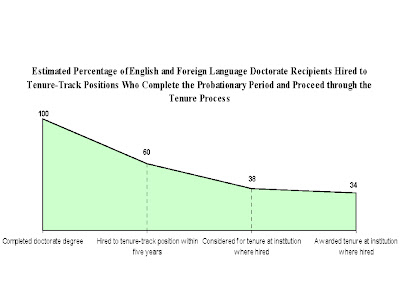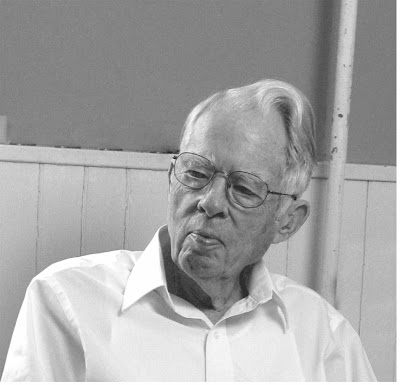Stiftel, on The Personal Tenure Statement, Version 23.7

Guest post by past ACSP President and Florida State University Professor Bruce Stiftel.
***********************************************
My Statement, Version 23.7.
At last week’s FWIG roundtable on Preparing for your Tenure Evaluation, I spoke about crafting a written statement in support of your tenure review. My visuals are online.
The FWIG Yellow Book says,
“You must prepare a personal statement, whether required or not, because it allows you to explain the value of what you’ve done, the honor of the recognition or awards you’ve received, the impact of your research grants and scholarly work” (p.133)
I think the value of a statement goes further: Writing a statement helps each of us understand just what are our contributions have been, and what impact we have had. Understanding these, in turn, can help us see where we want to go, and think better about how to get there. It’s commonplace in the professoriate to say we don’t really understand something until we’ve tried to write it; this truth applies no less to understanding our careers.
Strategically, your statement can offer language and ideas which are picked up by internal evaluators and external reviewers. This may lead to a more cohesive dossier in which the key claims made by all involved seem compatible. Perspectives will differ of course; too much similarity may seem like an orchestrated sell job; but, outside your department evaluators are likely to see resonant reviews as indicative of real contribution, while discordant reviews may be seen as an indicator of lack of meaningful impact.
Your statement will be read very widely, not just by departmental and external reviewers, but by the full range of faculty members serving on retention, promotion and tenure committees at the college and university levels, administrators and trustees as well. You should write in language that is understandable to readers from diverse disciplines on campus, including artists and bench scientists, not just urban planners.
“I have calibrated runoff predictions for curve number II (CN11) and saturated hydraulic conductivity (Ksat) for ADAPT, and CN11, Ksat, and available water capacity for SWAT,”
will reach only a few hundred specialists in the world.
“I have shown that higher levels of interconnectivity, coupled with traffic calming interventions, lead to an increase in trip capture and lower VMT,”
will reach planners, but few others.
“My work tying delays in permitting decisions to frequency of land-use code violations suggests the real benefits to urban quality of life that are likely to result from improvements in planning agency staff size and training,”
should be understandable across campus.
You should write so that those who need to look over your file in a short time can find the core information and argument quickly. Yes, your career deserves careful homework on the part of review committee members, but so do the 70 other careers they may be asked to assess this cycle. They may be forced by time to try to get to the point quickly. Be sure you make it easy for them.
Compare these two descriptions of the same experience:
1.“My classes, aimed at lower division undergraduates, upper division undergraduates, master’s students, and post-graduate school professionals, utilize traditional and innovative teaching methods, including lectures, discussions, debates, small group exercises, and fieldwork assignments. Throughout these many settings and pedagogical devices I seek to place the student at the center of the learning process; to emphasize independent thinking; and to allow the student to taste success by giving him/her enough latitude to fail.”
2. “In class, I place the student at the center of learning. Often using innovations involving small group exercises and fieldwork, I ask students to think independently, and encourage them to taste success by risking failure.”
Two says everything important one does, doesn’t it? Which is more likely to leave a clear memory? Use the rules you’ve learned about writing, from high school teachers and from journal editors.
Be upbeat, but realistic. If you can’t be positive about your contributions, few others will think they should be. Don’t over-reach: readers will see through that; but, portray things in their best light.
“This preliminary work suggests that the phenomenon differs in urban and rural settings; seeking to understand the underlying causes of these differences will be the next step in my research program,”
is better than,
“This complex phenomenon is as yet poorly understood, so it isn’t unusual that the findings in my several studies conflict.”
Finally, to the extent feasible, you should try to portray your work as an integrated whole, rather than a series of loosely connected projects. You want readers to come to the conclusion that your work adds up to something significant. This requires focus on the similarities and over-arching conclusions in your work, not its repetitive or diverse nature. Would you have voted to tenure Britton Harris if what you knew was that he studied,
“Transportation modeling, residential choice, projections, planning theory, operations research methods, energy, GIS, and rank-size rule?”
How about,
“Britton Harris…laid out the map that many…use to navigate (the) way through the turbulent waters of applying computers and mathematical models to cities and city planning” (Batty 2005: 475)?
Bruce Stiftel
Florida State University
References and Sources of Graphics:
Batty, M.2005. Obituary: Britton Harris: 1914-2005. Environment and Planning B: Planning and Design. 32:475-476. DOI:10.1068/b3204ob.
The Irrepressible Women Planners. 2003. The Yellow Book: How (Not) To Get Ahead In Academia. Association of Collegiate Schools of Planning, Faculty Women’s Interest Group.
Modern Language Association, Task Force on Evaluating Scholarship for Tenure and Promotion. Report. 2006. MLA Report on Evaluating Scholarship for Tenure and Promotion. New York.
- Published:
- Friday, October 26th, 2007
- Author:
- randall Crane
- Topics:
- academic life, mentoring, publishing, tenure
Blogroll
- Becker-Posner blog
- BLDG BLOG
- Burb
- CityStates
- Curbed LA
- Cyburbia
- DemocraticSPACE
- Environmental and Urban Economics
- Freakonomics
- LA Transportation Headlines
- Peter Gordon’s Blog
- Planetizen
- The Center for Land Use Interpretation
- The Transportationist
- the urban commons
- This week’s finds in planning
- Urbanicity
Journals
- Cityscape
- environment and planning a,b,c,d
- Harvard Design Magazine
- Housing Policy Debate
- Housing Studies
- International Development Planning Review
- International Journal of Urban and Regional Research
- International Regional Science Review
- Journal of Architectural and Planning Research
- Journal of Housing Economics
- Journal of Planning Education and Research
- Journal of Planning Literature
- Journal of Regional Science
- Journal of the American Planning Association
- Journal of Urban Affairs
- Journal of Urban Economics
- Planning Theory
- Regional Science & Urban Economics
- Transportation Research Parts A,B,C,D,E,F
- Urban Studies
- World Development

No comments
Jump to comment form | comments rss | trackback uri